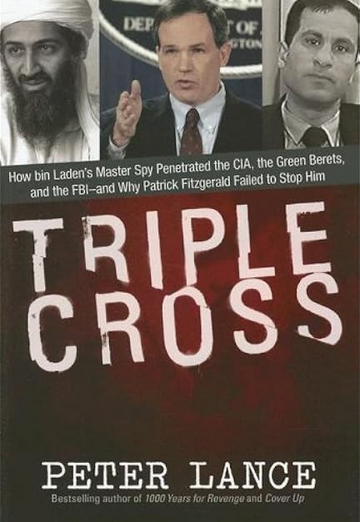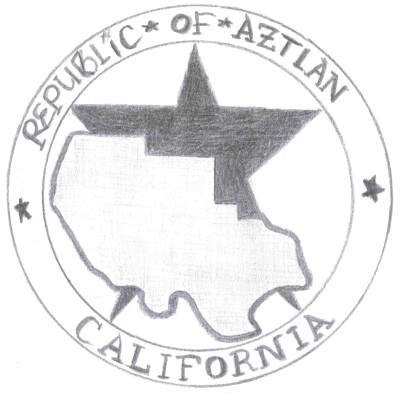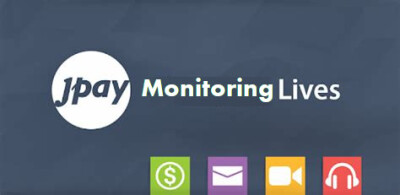In the forthcoming piece We would like to point out the particular
inter-connectedness of many of the enemy-states’ recent
counter-offensive to Our collective progress. When We speak to
‘progress,’ we’re speaking to the strategic goal of establishing a
national prison movement - a revolutionary oriented prison movement. A
national revolutionary prison movement that is intrinsically connected
with a national revolutionary oriented united front on the outside. In
this piece We’ll attempt to illuminate to the reader that recent and
present ‘security’ and censorship methods enacted by the enemy-state are
indeed counter-offensives and are intrinsically inter-connected both
outside and inside.
Any conscious observer will readily concede that in recent years,
particularly within the prisons across the empire there has been an
increase in censorship tactics. In some cases these methods border on
extreme.
For all intents and purposes We can understand that the current
prison movement took its first primitive steps forward towards
nationalization with the hystoric hunger strikes organized in California
from 2011-2013. The underlying blueprint for these actions, the
Agreement to End Hostilities, showcased the way forward for many around
the empire. Furthermore, and what’s harder to measure, is the amount of
inspiration that those actions initiated.
We have a small window into this reality, as it has been recorded
that prison officials in other states, by the advent of the third and
final strike, began pleading with CDCR to settle the issues the comrades
in Califas raised, as they had began dealing with similar unrest in
their state’s prisons.
Here it may be necessary to pinpoint that the prison movement as We
know it today didn’t begin in 2011. Rather there have been other
organizations that have connected the functions of prison to the human
rights movement. A notable organization is the Human Rights Coalition
led by elder BLA and BPP veteran political prisoner/prisoner of war
Russel Maroon Shoatz. [Rest in Power, Shoatz died on 17 December 2021,
at age 78, less than 2 months after eir release from prison with
cancer.] However, beginning with the Califas hunger strikes there was a
substantial qualitative leap forward in both participation and interest,
inside and outside countrywide.
Moving forward towards the 2016 National Prison strike; the
collective action, along with its subsequent 2018 sequel, did wonders in
nationalizing the Prison Human rights movement gaining corporate media
attention and subsequently grasping the attention of previously
uninterested parties. Some of these parties were prison officials, C.O.
unions, police unions, and others intrinsically woven into the criminal
injustice apparatus. Others were concerned persyns: a new generation of
abolitionists began to spring up, usually deriving from the college
campus sector. The spokesperson of the national prison strikes, Sis.
Amani Sawari, along with imprisoned activists within key organizations
like Jailhouse Lawyers Speaks, Free Alabama Movement, and many in
Califas helped bring the key “Ten Demands” of the National Prison strike
to the mainstream as these issues began to be debated among presidential
candidates throughout 2019 and 2020.
Before We move on it is important to pinpoint here that the Prison
Human Rights Movement, has had and continues to have much stratification
within its ranks. The first and major stratification point derives from
differences in political line surrounding the role of the movement.
Similar to the days of the Civil Rights movement, when the question
of ‘non-violence’ was seen by some as a philosophical or theological
commitment, while for others it was simply a tactic, one to be discarded
if/when it proved un-useful. The current prison movement has many of the
same components. While there are many more revolutionary oriented
groups/persyns who see the success of the prison movement with the
advent of voting rights, or other prison reforms. Instead many of these
groups agree that prisons can not be reformed, as it is an intrinsic
part of the state apparatus. These groups agree that revolutionary
consciousness and commitment are the most meaningful things that can
come of the prison movement.
Simultaneously, in recent years there has been an upsurge in radical
activity on the outside. Much like in the prison movement there are many
youthful combatants, and much decentralized activities. The fact that
these movements have risen parallel among each other should not be
considered a coincidence, nor should the corresponding and parallel
counter-offensives be seen as unrelated coincidences.
As BlackLivesMatter and abolitionist praxis protests arose around the
country, particularly in the aftermath of the George Floyd murder,
reactionary lawmakers (persuaded by reactionary constituents) began
implementing new repressive laws to quell protest. Federal lawmakers,
led by the Trump-Pence duo led the way and most states followed suit.
Such laws, or rather counter-offensives, included making the blocking of
traffic, as had been done repeatedly in recent years, a first degree
felony. In states like Tekkk$a$ that means that such protests would be
punishable with sentences of 5-99 years!
Also, in a move to revamp Black Liberation era counter-offensives,
federal legislators (followed by various states) felonized crossing
state boundaries to partake in protests. Some students of the movement
may recall that this measure was first enacted against Imam Jamil
Al-Amin, the former H. Rap Brown of SNNC, BPP, and RNA at the apex of
the Black Liberation struggle.
These are only a few key examples of the criminalization of radical
dissent as it pertains to those on the outside. However, C.O. unions,
DOC headquarters, and various reactionaries began their countervailing
efforts on radical and revolutionary forces on the inside first.
In the almost immediate aftermath of the 2016 National Prison Strike,
DOC’s around the empire all began complaining of the same issue: an
illusionary influx of drugs coming through the mail. Reading from the
limited research materials i have in my cell, it seems that the
counter-offensive attacking prisoner mail under the pretext of a major
drug influx began in 2017, and the first states to initiate this
offensives were Indiana, Pennsylvania, and Florida. States like
Tekkk$a$, initiated a different sort of attack on prisoner
correspondence by severely
limiting indigent mail in 2015. However, relating to the “influx of
drugs” ruse, many other states have since followed suit. Another related
component to the attack on prisoner mail is the wide spread switchover
to digitized mail services. States have begun denying all physical snail
mail and mail that have implemented this repressive tactic have also by
and large prevented prisoners from receiving books from “unauthorized”
vendors, basically mandating that reading material be sent from a sole
approved vendor.
All these measures described above are ‘on trend’ among the various
states around the empire, meaning these measures are likely to be making
their way to a prison near you. What We’re experiencing now is a proving
ground for the state, in which they’ve been observing to see which
countervailing measures will stir the masses the most, which ones will
survive the initial jailhouse lawyer onslaughts.
Again, it must be understood that the major drug influx cited by
(all) these state DOC’s is illusionary. That isn’t to say drugs aren’t
in prison, but they’re flowing in the same frequency as prior to 2016
(national prison strike). So why now? Why suddenly the state-to-state
focused attack on prisoner correspondence, and the digitizing of mail,
only after 2016? The answer points to a New-COINTELPRO type program
(NCTP). Part and parcel with this NCTP is the widespread, coordinated
countervailing attacks against progressive and revolutionary prisoners.
From Califas, Oregon, Nevada to New Mexico, Indiana to Pennsylvania;
from Virginia to North Carolina, South Carolina to Florida, Alabama to
Tekkk$a$, dissident prisoners are under attack. These attacks range from
down right malicious assaults to poisoning of food/water supplies, from
permanent solitary placement to the systemic silencing of these
militants. In places like TDCJ’s Allred Unit, which Texas uses to
isolate and torture political prisoners and captive journalists. They’ve
employed a specialized individual, ex-military/ex-cop, to survey
‘specific inmates’ mail and book deliveries. Is it clear yet?
As the 2020 summer uprisings raged on into the late fall in some
areas of the empire the Trump-Pence regime had already began laying the
foundation to begin the mass warehousing of political dissidents on the
outside utilizing some of the new laws mentioned above. As these
protests raged on, political radicals have filled up prisons and jails
around the empire. Do you all understand what this could mean for the
prison movement?
The last time in movement hystory that We experienced a mass influx
of militants and revolutionaries entering the prisons was during the
Black Liberation era (late 1960’s into the 1970’s). Atiba Shanna, and
the New Afrikan Prisoner’s Organization did a superb job illustrating
the effect political prisoners entering the prisons in mass had on the
already bubbling prison movement:
“As a result of the repression exercised upon the struggle taking
place outside the walls in the late sixties and early seventies, leaders
and activists in these struggles were captured and imprisoned. These
were the political prisoners and prisoners of war. Their initial
imprisonment was a result of consciously motivated political
actions.
“The escalation of struggle outside the walls also resulted in a
significant increase in the number of politicized prisoners already
inside the walls… We can admit that the economic and socio-psychological
ties that these politicized prisoners had with the oppressive system
were such that they represent the most conscious element among us - the
most conscious, that is, of the presently waging undeclared war between
themselves and those who rule. Thus, they are the most receptive and
responsive to the need to become ‘the people in uniform.’ BUT, their
politicization resulted primarily from their being members of oppressed
nations!” (1)
The people who are responsible for holding people in cages, and
keeping us in cages, are acutely aware of the possible and very likely
culture shock that is to overtake U.$. prisons that experience an influx
of political radicals. Never forget that in the time frame mentioned
above by Comrade Atiba, that the activities of the BLA and other similar
formations eventually led to the U.$. moving to build more newer, more
‘secure,’ and high tech prisons designed to keep Our political prisoners
and prisoners of war within them, and to prevent anymore political
prisoners of war from arising from among the captive populace.
Therefore i concur that We’re currently experiencing such
countervailing efforts by the enemy-state so that they may monitor
captive militants, their networks and families (with the design to turn
them into captive militants themselves) and prevent the rise of a more
militant, more ideologically consolidated, more revolutionary national
prison movement that is intrinsically inter-woven with a more militant,
ideologically consolidated, more revolutionary outside united front.
By this point We hope it is clear that just as the prison movement
and the movement on the other side of the walls have a dialectical
relationship; the enemies on both sides of the wall also have a
dialectical relationship, they also work together to the detriment of
Our progress. As more revolutionary oriented comrades advance the
national prison movement forward, repression will increase in intensity.
We must begin to operate in a way that one’s struggles become all Our
struggle. If comrades in one state are being overly repressed We must
band together in multiple states, letting the pig power structure know
“WE SEE YOU AND WE WON’T STAND FOR IT: 1LOVE 1STRUGGLE!” We must reach
such a level of organization and operation, and We are on the cusp of it
NOW. I encourage progressive and revolutionary captives to begin
dialoging, corresponding, with each other. Seek out the means to do so.
We must keep each other abreast to the local happenings from unit to
unit, state to state. Comrades that is why publications like Under
Lock & Key, San Francisco Bay View, and others are so
important. However, We aren’t utilizing these platforms to their
greatest extent if We aren’t constantly sending in reports, articles,
informing other comrades on what’s happening. And We must also begin to
support these institutions more effectively as a whole. I challenge all
ULK subscribers to raise at least 10 stamps to mail to
MIM(Prisons)! Which state can raise the most funds? TX where ya’ll at!?
Those 10 stamps can go a long way towards prisoner organizing and
educational efforts.
RE-BUILD TO WIN
1. Notes from a New Afrikan P.O.W. journal #1 by Atiba
Shanna













